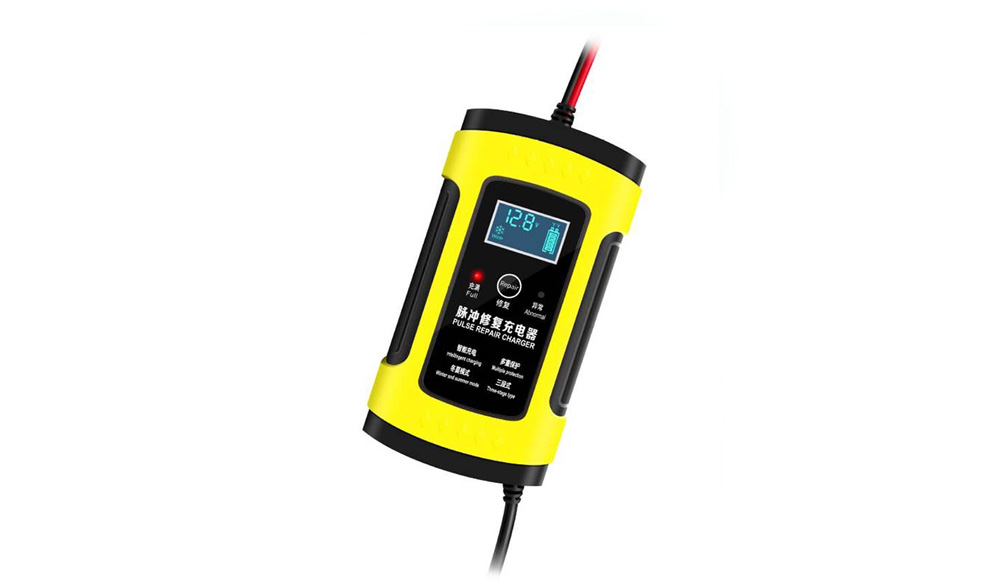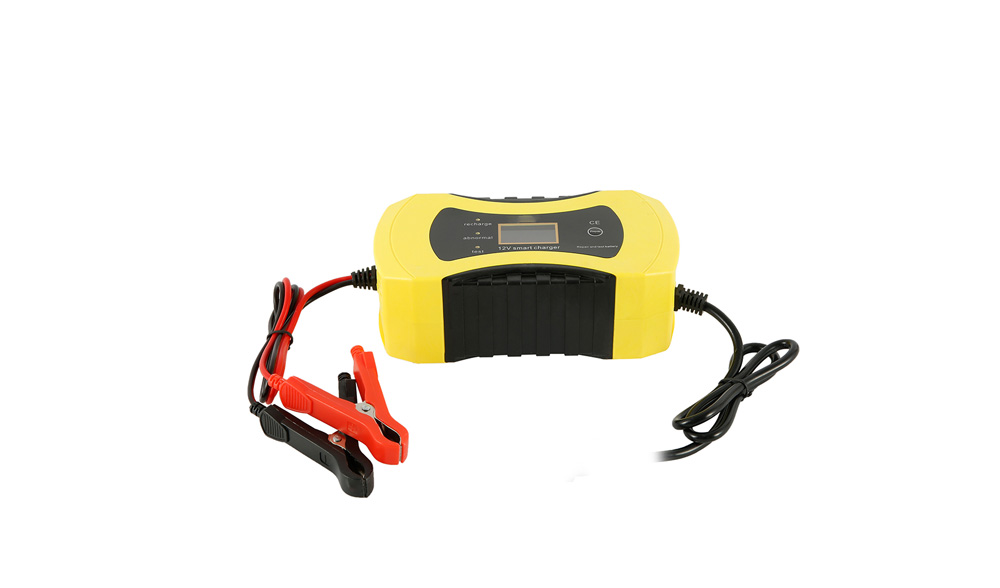Are you inquiring about the best methods for storing your RV or boat? Do you possess a vehicle that will remain stationary for an extended period? If you’ve answered affirmatively to either of these queries, then a battery maintainer could prove to be a crucial addition to your storage toolkit.
However, what precisely is the function of a battery maintainer? Continue reading to discover when it’s appropriate to utilize a battery maintainer, its advantages and the criteria for selecting the most suitable one for your needs. Let’s begin!
Battery Maintainer: What is It?
A battery maintainer can be described as a compact battery charger that supplies modest amounts of energy to your battery. This enables the battery to remain idle for extended periods without losing its charge, ultimately aiding in preserving its full capacity. Furthermore, by safeguarding your battery from harm, these devices can contribute to prolonging its lifespan.
The battery maintainer delivers a gentle, continuous charge to your battery and possesses the ability to detect when the battery reaches its full charge. At that juncture, it automatically turns off to prevent overcharging, rendering it an ideal choice for situations where your batteries will be inactive for an extended period.

When is the Time to Use a Maintainer?
If you have any type of vehicle that will be parked for two months or more, a battery maintainer can help ensure your battery remains charged. This way, you’ll be able to start your car, truck, van, or motorhome instantly when the time comes.
But why does a battery discharge when it’s not in use? This occurs due to a phenomenon known as parasitic drain and self-discharge. Anything connected to the battery, such as a vehicle’s computer and its electronic components, draws a small amount of power. Though this power draw is minimal, it can gradually deplete your battery over time.
Furthermore, batteries experience self-discharge, a natural process caused by their chemical composition. Even when nothing is connected to them, batteries lose stored energy over time. This issue is more pronounced in lead acid batteries than in lithium batteries, which underscores the importance of using a battery maintainer for lead acid batteries.
Difference Between a Battery Charger and Battery Maintainer
You might be wondering, “Can’t I simply use a regular battery charger? What sets it apart from a battery maintainer?”
A conventional battery charger continuously supplies voltage to a battery, regardless of its current charge state. For certain batteries, especially when used over extended periods, this continuous charging can be detrimental. Some battery chargers feature a smart mode that detects storage conditions and either reduces the voltage or turns off, similar to a battery maintainer.
In contrast, battery maintainers automatically switch off once the battery reaches its full charge. They re-engage when the battery begins to discharge again, making them well-suited for prolonged usage scenarios.
Benefits of Using a Battery Maintainer
Based on our previous discussion, the benefits of a battery maintainer are quite clear: they ensure your battery remains fully charged, ready for you to embark on your journey by land or water whenever you wish.
Additionally, they play a crucial role in prolonging your battery’s lifespan by preventing it from succumbing to permanent damage during extreme weather conditions. Fortunately, these maintainers are designed for extended use, offering you added assurance while your vehicle or boat remains stationary.
All in all, a compact battery maintainer proves to be a significantly more cost-effective solution compared to investing in a full-scale charging system solely for the purpose of maintaining a charged battery.

Is the Continuous Use of a Battery Maintainer Safe?
Wondering if it’s safe to leave your battery maintainer connected all the time? Fortunately, the answer is affirmative! Battery maintainers are engineered for continuous and extended use, and when used properly, they should pose no safety concerns. Feel free to keep them connected for as long as necessary.
It’s a good practice to perform occasional checks on the maintainer. Although it shouldn’t pose any harm to your batteries, there’s a possibility it could malfunction over time. Consider a monthly check to ensure the maintainer is still operational and doing its job effectively.
Select a Right Battery Maintainer for Your Needs
The primary factor to take into account when selecting a battery maintainer is the voltage compatibility with your battery. It’s essential to choose a maintainer that can effectively charge your particular battery type.
Are They Worth the Purchase?
The worthiness of investing in a battery maintainer hinges on your specific requirements. These devices are designed with a distinct purpose: to ensure the continuous, safe charging of your batteries over extended periods.
If you anticipate your vehicle or boat remaining idle for several months, then the answer is a resounding yes — having a battery maintainer for starting batteries is unquestionably worthwhile. It provides the assurance that your battery will remain reliably charged, reducing the frequency of needing to purchase new batteries.
Want to Learn More About Battery Maintainers and Lead Acid Batteries?
We know the characteristics of lead acid batteries and understand that sometimes it is not an easy task to maintain lead acid batteries. That’s why Power1986 is always ready to help you in any way. Power1986 is specialized in providing Car Battery Chargers, eBike Scooter Chargers, DC-AC Power Inverters and Switching Power Supplies. Welcome to visit Power1986 or Contact Us to learn more.
